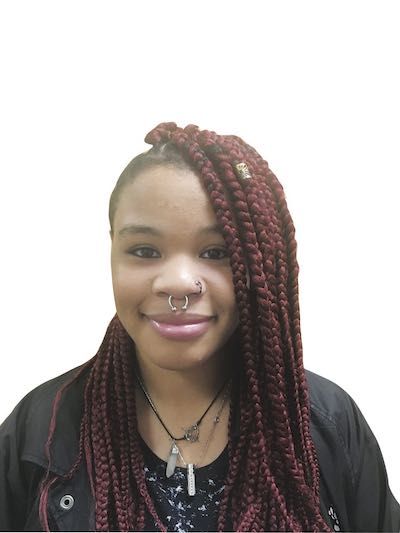Power of One
Maven Gardner
When it comes to being an adolescent in foster care, I think it’s safe to say that a majority of youth feel a bit alienated. Especially when they are not amongst others that share the same experiences as them. I would like to see more conversations about the importance of placing youth of color in homes that share their racial identity. Or when this isn’t possible, ensuring they have access to resources and/or opportunities that have to do with how they identify.
I felt better understood and much more comfortable in homes with my African American caregivers. I was able to express things openly with them. Simple things like slang was often lost in other placements or taken as sarcasm or disrespect. And in placements where the caregivers were not people of color, I often didn’t have proper hair and body products because they were a luxury more than a need.
I had a lot of unpleasant experiences in my group home and foster home placements with few or no staff or parents of color. From ridiculous stereotypes like, “Why don’t you like chicken?” to “Why can’t you braid hair?” and “Why do you wear sunscreen if black people don’t burn?” These ignorant remarks were constant and very frustrating. When I brought up these things, it was to Caucasian staff and case workers who didn’t understand why I didn’t just ignore the comments. To them it was harmless teasing.
The thing that bothered me the most was that if I was amongst my own people, these stereotypes wouldn’t be thrown in my face, and my needs would be known and met. But unfortunately, I did not have the option to pick and choose who I would live with.
There was a time when I was placed with a foster mother of African descent and I was able to learn more about myself, my people, my cultural background. I had the opportunity to participate in West African drum and dance with her. Learning about my history and my culture helped me not only during the time I stayed with her, but it carried on to how things play out in my life to this day. I am still involved in the same community and activities as an adult, and I can give my son the same opportunities. With that said, I had to keep connected on my own, when I left this placement I didn’t have the same opportunities. I was back amongst people that didn’t know me or how to support me.
I know there is a lack of foster parents/families of color here in Washington, but I feel that there needs to be a bridge of some sort. So that youth of color can have a better idea of who they are. It is important that youth of color are connected to their cultural identity, whether this is through arts like dance and music, community events, workshops, camps, or other activities that match the young person’s interests and cultural background. At the end of the day, we need homes that are more racially diverse. But we know that is easier said than done, so we need to make sure that we are not asking our youth in care to give up every part of themselves. And make sure they don’t get lost in a broken system - one that doesn’t do well with ensuring that the young ones trapped inside still feel like people rather than pawns.